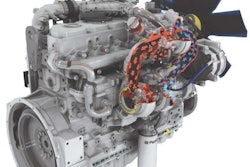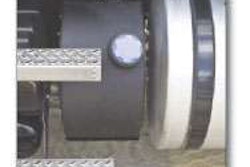A rule delayed

When the Associated General Contractors of America and the California Air Resources Board said on October 7 they were issuing a joint statement, it could only mean one thing: CARB was backing off on its off-road emissions regs. And so CARB now says it will delay large-fleet enforcement of its rule until January, 2014.
“In a sense,” said Mary Nichols, CARB board chair, during a teleconference that day, “there’s some good news coming out of the recession because it’s given us more time to address this problem. It was a complicated rule,” she admitted, and the new enforcement date will give the agency “time to make it comprehensible and sensible.”
In addition to the deadline pushback, CARB says it will simplify compliance options, increase the number of low-use equipment exempted from the rule, extend benefits for companies that comply before their deadline and lower annual requirements to clean up engines.
Well, well. While there was a lot of “let’s put this all behind us” fervor in the teleconference, the 2010 version of the CARB off-highway rule will remain Exhibit A in government bungling for years to come.
We should probably relish this rare skirmish won against aggressive ignorance of the facts.
And delayed enforcement means little to the contractors who came under CARB’s definition of owning a “major fleet” of more than 5,000 horsepower. Those who were good corporate citizens have already anted up – spending the money to replace, repower and retrofit before the original March deadline. Yes they’re several steps ahead now that the deadline is four years away, but I’m sure they would have appreciated the extra time their competitors who weren’t so diligent are now getting.
We should probably relish this rare skirmish won against aggressive ignorance of the facts. AGC’s getting a lot of the credit, and its foresight in commissioning a study that proved CARB’s emissions data were entirely off base was an absolute lynch pin in getting this delay. But I’d also give credit to all the associations involved – including the Southern California Contractors Association and the Construction Industry Air Quality Coalition – for their concerted effort to get some reason in these rules. Their members testified about, emailed and documented the severe financial impact the rule would have on their operations. It was truly a group effort.
This delay does not mean elimination – the rule is still very much in place. But now there’s time to “learn more about the construction industry” as Nichols puts it, and craft that “comprehensible and sensible” program she referred to earlier. One can’t help but wish that had been the original goal all along. EW












